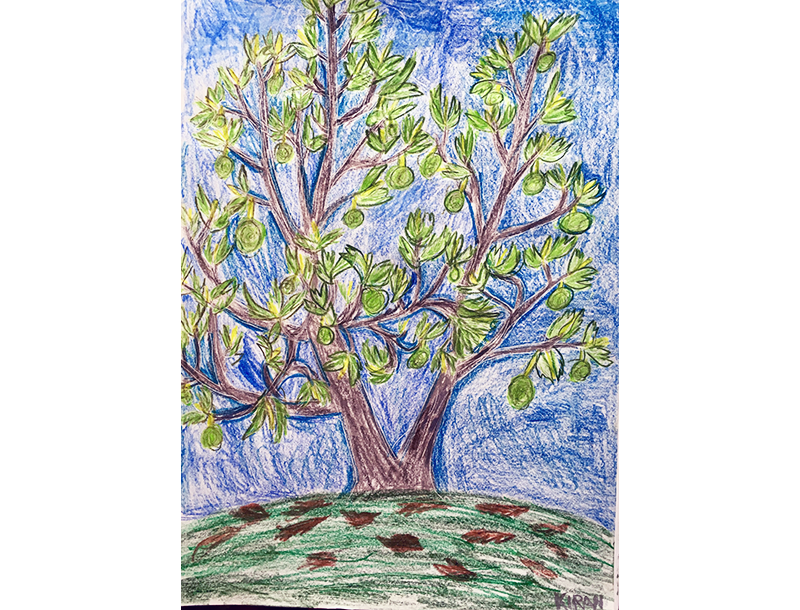‘Ulu Education Toolkit Launch
The ‘Ulu Education Toolkit was launched earlier this month on the University of Hawai‘i at Mānoa College of Education’s, STEMS² website as an interdisciplinary, standards-aligned, searchable online database with the goal of increasing appreciation and utilization of ʻulu (breadfruit) as a staple starch.
Educators are invited to use the Toolkit to incorporate lessons about ʻulu into their classrooms, school gardens, and formal or informal learning environments, from preschool through post-secondary levels.
This project is the result of a multi-year collaboration among the Hawai‘i ‘Ulu Cooperative, Hawai‘i Farm to School Hui/Hawai‘i Public Health Institute, the STEMS² Program at the University of Hawai‘i at Mānoa College of Education, and other community partners – including dozens of individual resource contributors drawing on the mana‘o, experience, and hard work of many organizations, individuals, and generations.
The supplementary resources, videos, recipes, lessons, and unit plans contained within the Toolkit share not only valuable knowledge about ‘ulu and other indigenous crops, but also the values of mālama ‘āina, ‘ike from both traditional and contemporary sources, and ola for Hawai‘i, especially for the keiki.
“It is thrilling to know that more people can now easily access information about ‘ulu,” Dana Shapiro, general Manager of Hawai‘i ‘Ulu Cooperative, said. “Rebuilding our communities’ knowledge of and appreciation for indigenous crops is key to fostering greater food system resilience in Hawaiʻi. This process starts and ends with our youth – the islands’ future eaters, shoppers, farmers and leaders. I I look forward to seeing the discoveries, programming and possible policy changes that this evolving project may spark.”
The Toolkit’s launch coincides with establishment of a formal, comprehensive farm to school program within the Hawai‘i Department of Education via House Bill 767, passed this session by the Hawai‘i State Legislature. The program aims to improve student health and strengthen local food systems by increasing garden- and farm-based education for students of all ages, and by increasing local food procurement for school food programs.
ʻUlu is a traditional Polynesian staple that comprised an important part of Hawaii’s food system before European contact, contributing to greater food self-sufficiency than the islands have today. Like elsewhere across the Pacific, colonization and globalization led to a sharp decline in the consumption of ‘ulu and other traditional staples in Hawai‘i.
‘Ulu is among the most sustainable starches on earth because it grows on a perennial tree that sequesters carbon and provides relative climate resilience. From a nutritional standpoint, ‘ulu is a complex carbohydrate with more dietary fiber and some vitamins and minerals than the primary staples currently imported to Hawaiʻi (potatoes, wheat, and rice). It has been shown to help mitigate Type II diabetes when (re)incorporated as a dietary staple, and is extremely versatile from a culinary standpoint.
Over the past decade, a movement to revitalize underutilized indigenous crops such as ‘ulu has taken hold globally. The ‘Ulu Education Toolkit will help to root this movement within the lives of Hawaiʻi’s youth.
RESOURCES:
‘Ulu Education Toolkit Guide here.
‘Ulu Education Toolkit Tutorial Video here.
‘Ulu Education Toolkit Social Media Graphic here.
Hawai‘i ‘Ulu Cooperative (HUC) here.
Hawai‘i Farm to School Hui, a program of Hawai‘i Public Health Institute here.
University of Hawai‘i at Mānoa College of Education STEMS² Program here.







